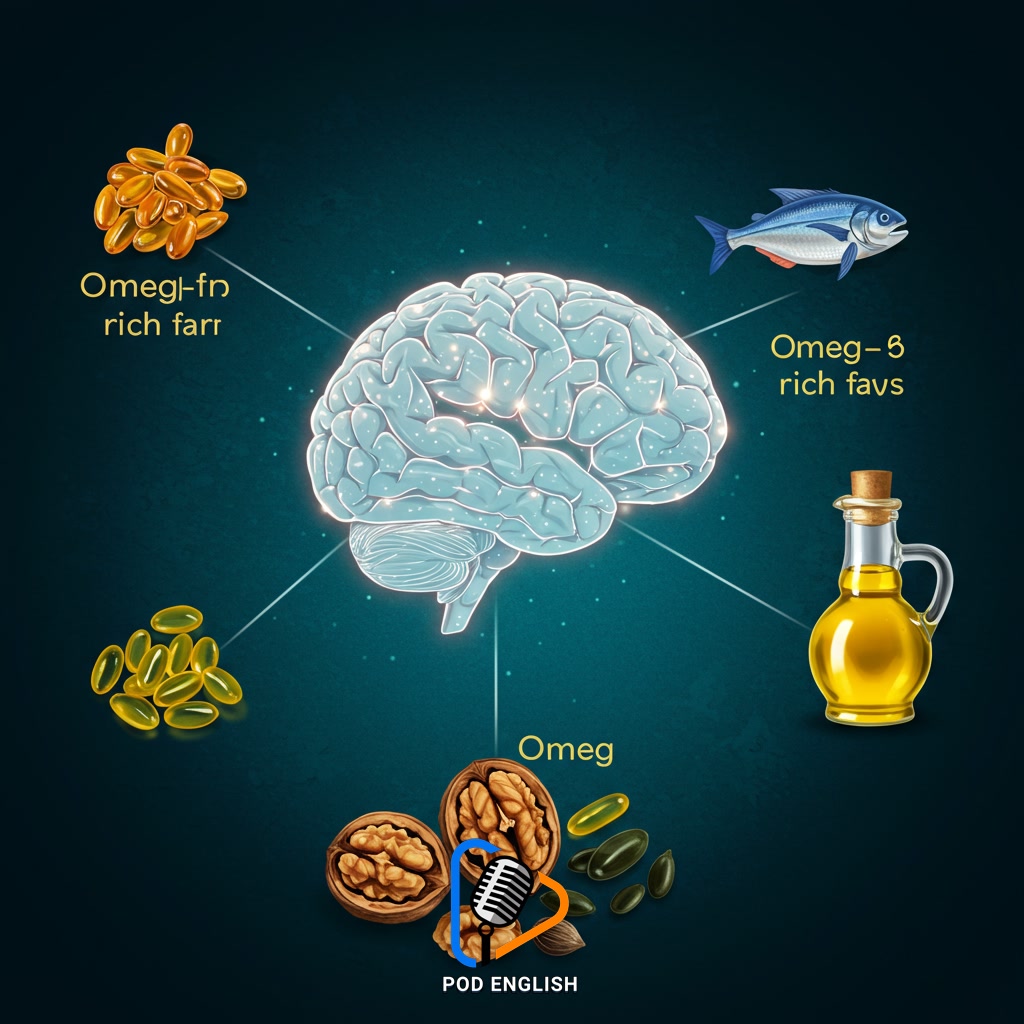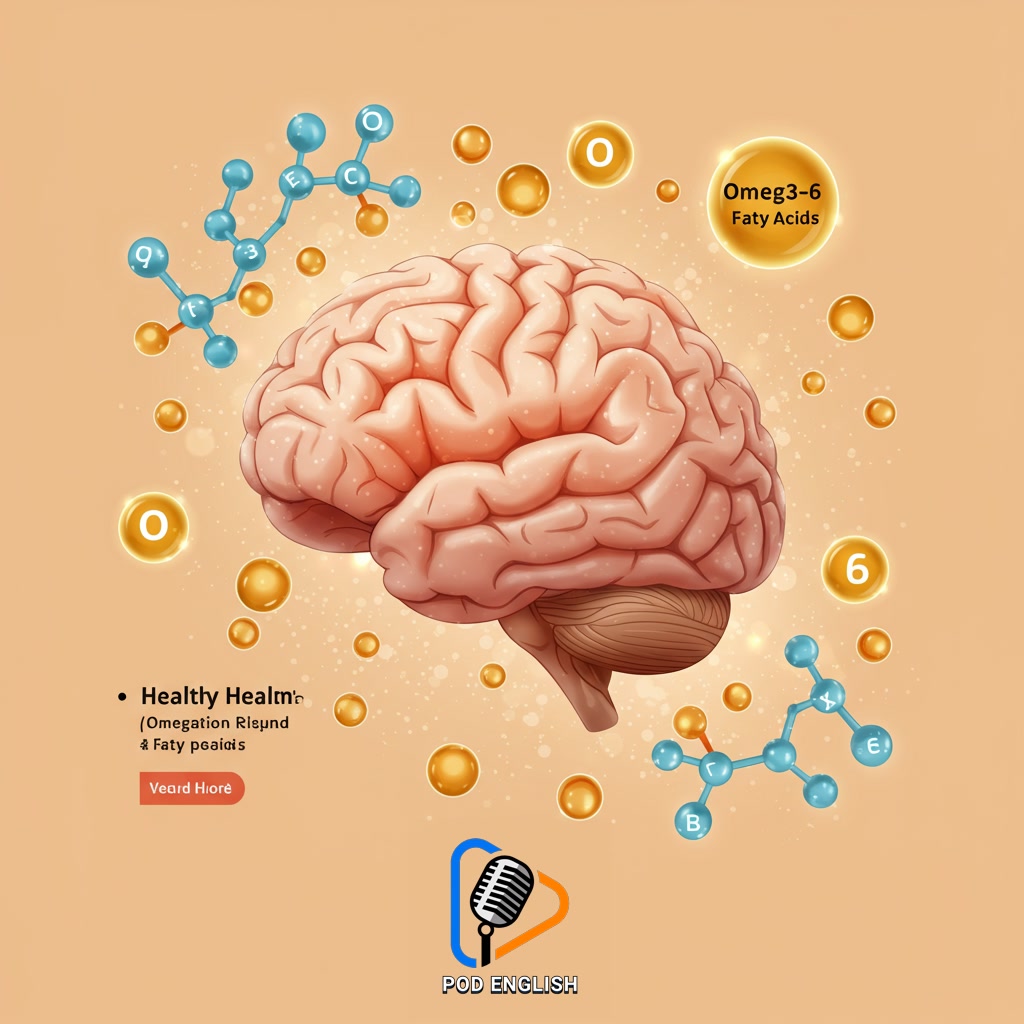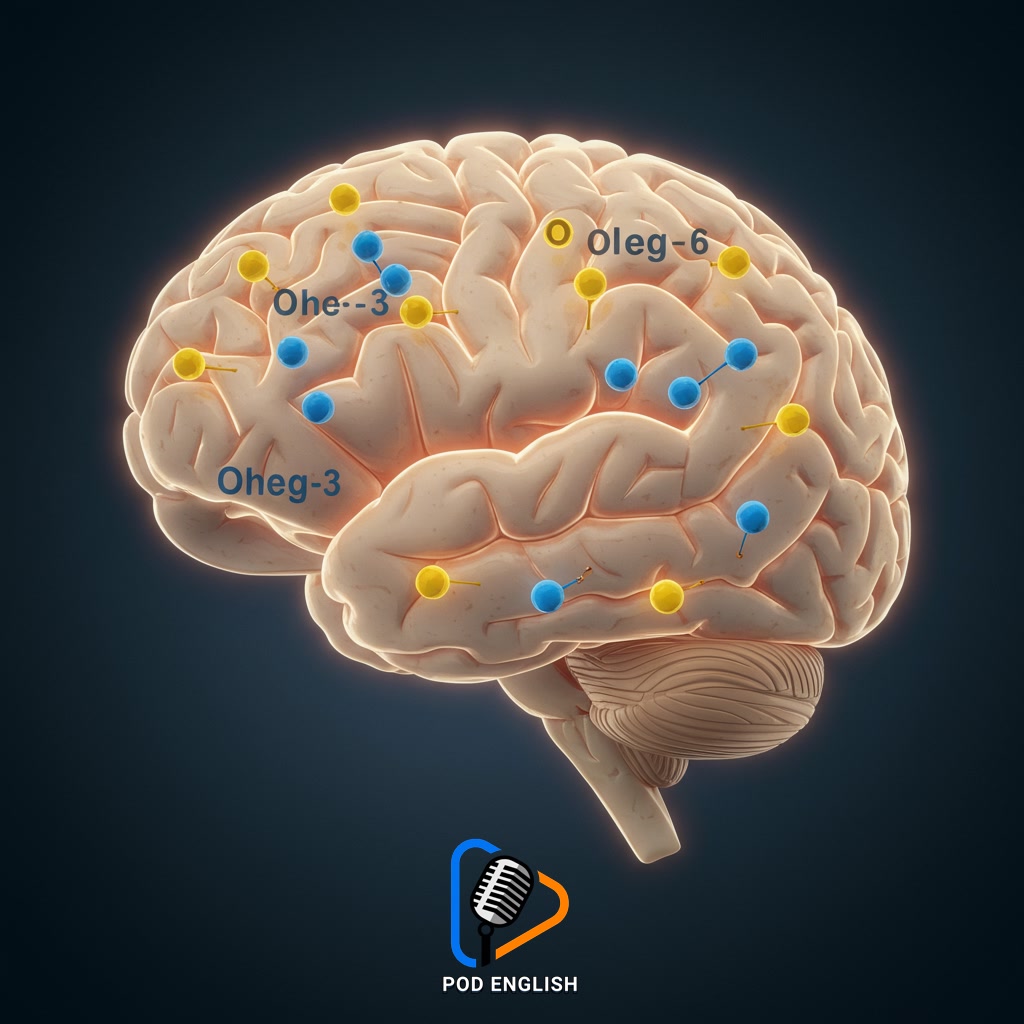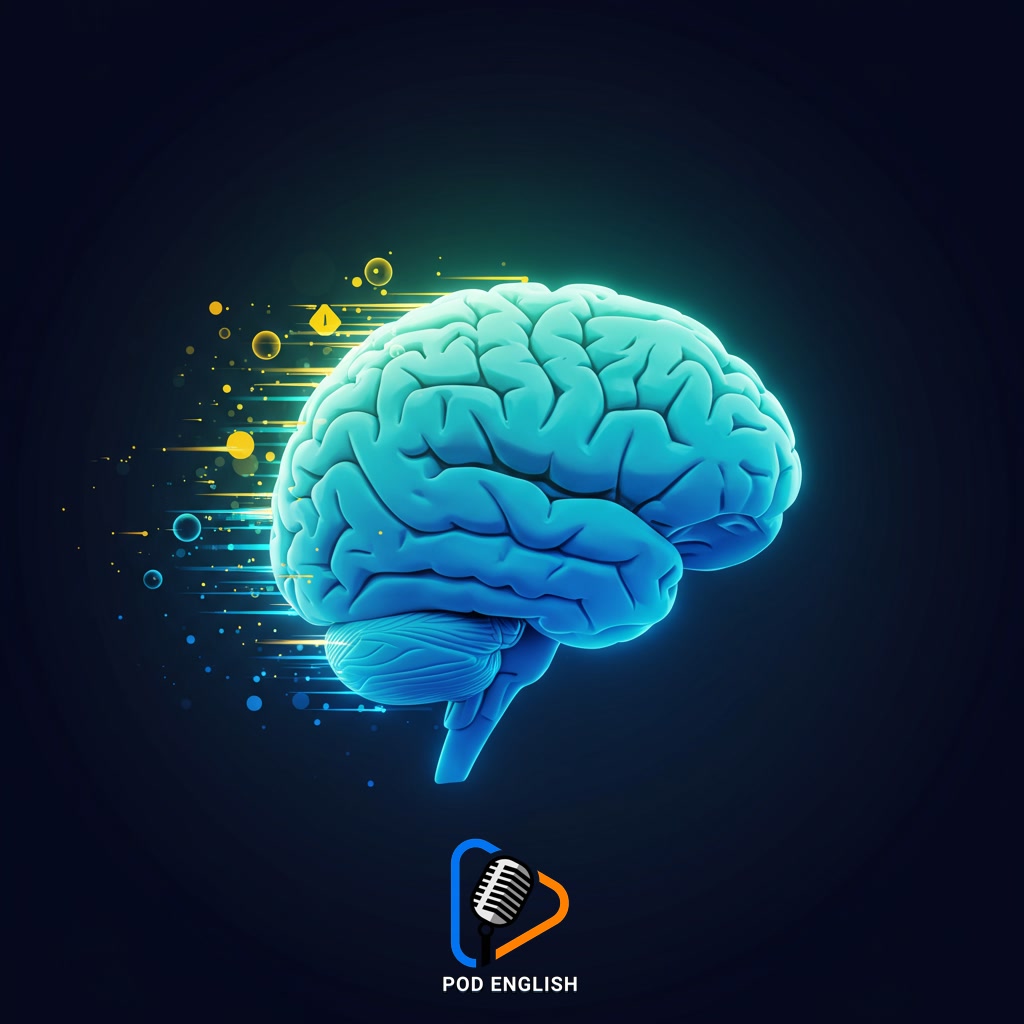Learn English
Optimize Your Brain: Omega-3, Omega-6 for Learning English

This content explores the impact of Omega-3 and Omega-6 fatty acids on brain performance. It examines how optimizing the balance of these nutrients can support cognitive functions essential for acquiring new information and skills. The discussion specifically relates these nutritional strategies to improving the effectiveness of learning English.
Table of Contents
- Section 1: Introduction: Fueling Your Brain for English Learning
- Section 2: Understanding Omega-3 and Omega-6: Essential Fats for Brain Health
- Section 3: How Omega Fatty Acids Support Cognitive Functions for Language Acquisition
- Section 4: Specific Benefits for Learning English: Memory, Focus, and Processing
- Section 5: Finding the Right Balance: Dietary Sources of Omega-3 and Omega-6
- Section 6: Beyond Omegas: Integrating Nutrition with Effective English Learning Strategies
- Section 7: Conclusion: Optimize Your Brain, Accelerate Your English Mastery
Section 1: Introduction: Fueling Your Brain for English Learning
Welcome to ‘Optimize Your Brain: Omega-3, Omega-6 for Learning English’. Just like a car needs the right fuel to run efficiently, your brain needs specific nutrients to perform at its best. When you are learning a new language, like English, your brain works hard to process new vocabulary, grammar rules, and sounds. This requires concentration, memory, and cognitive flexibility. What you eat plays a crucial role in supporting these vital brain functions. Among the most important nutrients are healthy fats, specifically Omega-3 and Omega-6 fatty acids. This document will explore why these fats are essential, how their balance affects your brain’s health and performance, and how optimizing your intake can give you a significant advantage in your English learning journey. Let’s discover how to fuel your brain for success.

Introduction: Fueling Your Brain for English Learning
Section 2: Understanding Omega-3 and Omega-6: Essential Fats for Brain Health
Building on the idea that your brain needs the right fuel, let’s understand two crucial types of fats: Omega-3 and Omega-6 fatty acids. These are called ‘essential’ fats because your body cannot produce them on its own; you must get them from your diet. They are fundamental building blocks for brain cells and play vital roles in maintaining cell membrane structure, which is critical for communication between neurons. Omega-3s, like DHA found abundantly in the brain, are particularly important for cognitive function, memory, and learning. While Omega-6s are also necessary for brain health, the key is maintaining a healthy balance between the two for optimal brain performance and overall well-being, which directly impacts your ability to focus and absorb new information, like learning English.

Understanding Omega-3 and Omega-6: Essential Fats for Brain Health
Section 3: How Omega Fatty Acids Support Cognitive Functions for Language Acquisition
Building on the idea that your brain needs the right fuel, let’s understand two crucial types of fats: Omega-3 and Omega-6 fatty acids. These are called ‘essential’ fats because your body cannot produce them; you must get them from food. These fatty acids are vital building blocks for brain cells, particularly in the cell membranes that control communication between neurons. A healthy balance of Omega-3 and Omega-6 supports crucial cognitive functions like memory, focus, and processing speed. For anyone learning English, improving these functions is key. Strong memory helps retain new vocabulary and grammar rules, better focus allows for more effective study sessions, and faster processing speed aids in understanding spoken English and forming sentences. Thus, ensuring adequate intake and a proper ratio of these fats can directly enhance your brain’s capacity for acquiring a new language.

How Omega Fatty Acids Support Cognitive Functions for Language Acquisition
Section 4: Specific Benefits for Learning English: Memory, Focus, and Processing
Building on the idea that your brain needs the right fuel, essential fats like Omega-3 and Omega-6 play a critical role in cognitive function. Specifically for learning English, maintaining a healthy balance of these fatty acids, particularly ensuring sufficient Omega-3s like DHA, directly supports key brain processes. Omega-3s are vital components of brain cell membranes, facilitating communication between neurons. This enhanced communication is crucial for improving memory recall, helping you retain new vocabulary and grammar rules. They also contribute to better focus and concentration, enabling you to absorb information more effectively during lessons or study sessions. Furthermore, these fats can improve the brain’s processing speed, allowing you to understand spoken and written English more quickly and formulate responses faster, making conversations smoother and learning more efficient.

Specific Benefits for Learning English: Memory, Focus, and Processing
Section 5: Finding the Right Balance: Dietary Sources of Omega-3 and Omega-6
Achieving the optimal ratio of Omega-3 and Omega-6 fatty acids is crucial for brain health, which directly supports your efforts in learning English. Since our bodies cannot produce these essential fats, we must obtain them through our diet. Excellent sources of Omega-3 include fatty fish like salmon, mackerel, and sardines, as well as plant-based options such as flaxseeds, chia seeds, and walnuts. These foods provide the necessary building blocks for healthy brain cell membranes. On the other hand, Omega-6 fats are more common in Western diets, found in vegetable oils (like soybean, corn, and sunflower oil), nuts, and seeds. The key is not to eliminate Omega-6, but to increase Omega-3 intake to balance the ratio, thereby enhancing cognitive functions vital for memory and comprehension when tackling a new language.

Finding the Right Balance: Dietary Sources of Omega-3 and Omega-6
Section 6: Beyond Omegas: Integrating Nutrition with Effective English Learning Strategies
Achieving the optimal ratio of Omega-3 and Omega-6 fatty acids is crucial for brain health, which directly supports your efforts in learning English. Since our bodies cannot produce these essential fatty acids, obtaining them through diet is necessary. However, while a healthy brain provides a solid foundation for learning, optimizing your nutritional intake is just one piece of the puzzle. Truly effective English learning also requires active application of specific strategies. This includes consistent practice, engaging with authentic materials like movies or podcasts, actively using new vocabulary and grammar in conversation or writing, and utilizing techniques such as spaced repetition for memory retention. Integrating these proven learning methods with a brain supported by balanced nutrition creates a powerful synergy, significantly enhancing your ability to acquire, process, and retain new English language information more efficiently.

Beyond Omegas: Integrating Nutrition with Effective English Learning Strategies
Section 7: Conclusion: Optimize Your Brain, Accelerate Your English Mastery
Achieving the optimal ratio of Omega-3 and Omega-6 fatty acids is crucial for brain health, which directly supports your efforts in learning English. Since our bodies cannot produce these essential fats, obtaining them through diet or supplementation is paramount. By consciously working towards a healthier Omega-3 to Omega-6 ratio, you are directly investing in your brain’s capacity for learning and memory formation. This enhanced cognitive function provides a solid foundation, making the complex process of acquiring a new language like English more efficient and effective. Ultimately, prioritizing this nutritional balance is a practical strategy to boost your brain health, thereby accelerating your journey towards English fluency and mastery.

Conclusion: Optimize Your Brain, Accelerate Your English Mastery













